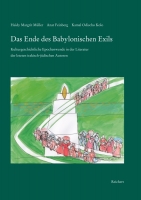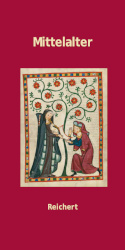Search
Müller, Heidy Margrit; Feinberg, Anat; Kolo, Kamal Odischo
Das Ende des Babylonischen Exils
Kulturgeschichtliche Epochenwende in der Literatur der letzten irakisch-jüdischen Autoren
2011
17.0 x 24.0 cm, 340 p., hardback
ISBN: 9783895008283
17.0 x 24.0 cm, 340 p., hardback
78,00 €
ISBN: 9783895008283
Short Description
“Das Ende des Babylonischen Exils” is the first comprehensive German-language study of Iraqi-Jewish literature. It is also the first study on the subject to consider memoirs written after 2003 as well as novels published by Iraqi Muslim authors, and offers new insights about literary works that shed light on a period in cultural history that is almost forgotten but still of great consequence today.The book explores literary works of Iraqi-Jewish authors of the late 20th and early 21st centuries. Arabic novels by Samir Naqqash and Shmuel Moreh are studied alongside literary works published in Hebrew by Sami Michael, Shimon Ballas and Eli Amir, novels by the French-Canadian writer Naïm Kattan and Mona Yahia’s first novel in English. Also the writings of the youngest generation, born after the Jews’ expulsion from Iraq, are commented on: Marina Benjamin’s and Ariel Sabar’s memoirs as well as new releases by the Israeli author Almog Behar and the Iraqi-Muslim exile writers Ali Badr and Najem Wali. With its in-depth analysis of recent novels by Iraqi Muslim authors in exile, this study offers insight into a literary corpus that presents new perspectives on the former Jewish population of Mesopotamia.
The literary works of Iraqi-Jewish authors deal with the formerly peaceful, though often fragile coexistence of Jews with Muslims and Christians in Mesopotamia. They also portray the “Farhood” pogrom of June 1941 and the plight of expelled Iraqi Jews in their new homelands. Their works reveal surprising aspects of an “Orient” that does not resemble the fairy-tale world of “A Thousand and One Nights”, but is just as colourful and vibrant.
Description
“Das Ende des Babylonischen Exils” is the first comprehensive German-language study of Iraqi-Jewish literature. It is also the first study on the subject to consider memoirs written after 2003 as well as novels published by Iraqi Muslim authors, and offers new insights about literary works that shed light on a period in cultural history that is almost forgotten but still of great consequence today.The book explores literary works of Iraqi-Jewish authors of the late 20th and early 21st centuries. Arabic novels by Samir Naqqash and Shmuel Moreh are studied alongside literary works published in Hebrew by Sami Michael, Shimon Ballas and Eli Amir, novels by the French-Canadian writer Naïm Kattan and Mona Yahia’s first novel in English. Also the writings of the youngest generation, born after the Jews’ expulsion from Iraq, are commented on: Marina Benjamin’s and Ariel Sabar’s memoirs as well as new releases by the Israeli author Almog Behar and the Iraqi-Muslim exile writers Ali Badr and Najem Wali. With its in-depth analysis of recent novels by Iraqi Muslim authors in exile, this study offers insight into a literary corpus that presents new perspectives on the former Jewish population of Mesopotamia.
The literary works of Iraqi-Jewish authors deal with the formerly peaceful, though often fragile coexistence of Jews with Muslims and Christians in Mesopotamia. They also portray the “Farhood” pogrom of June 1941 and the plight of expelled Iraqi Jews in their new homelands. Their works reveal surprising aspects of an “Orient” that does not resemble the fairy-tale world of “A Thousand and One Nights”, but is just as colourful and vibrant.




 Table of Contents
Table of Contents

 Neuerscheinungen 2023/2024
Neuerscheinungen 2023/2024
 Gesamtverzeichnis 2023/2024
Gesamtverzeichnis 2023/2024
 Katalog Oriental Studies & Linguistics
Katalog Oriental Studies & Linguistics
 Mittelalter
Mittelalter
 Deutsche Inschriften
Deutsche Inschriften
 Musiktherapie
Musiktherapie
 Literaturen im Kontext
Literaturen im Kontext